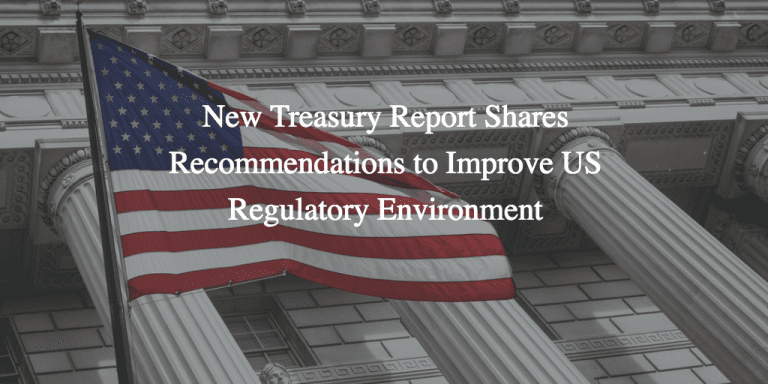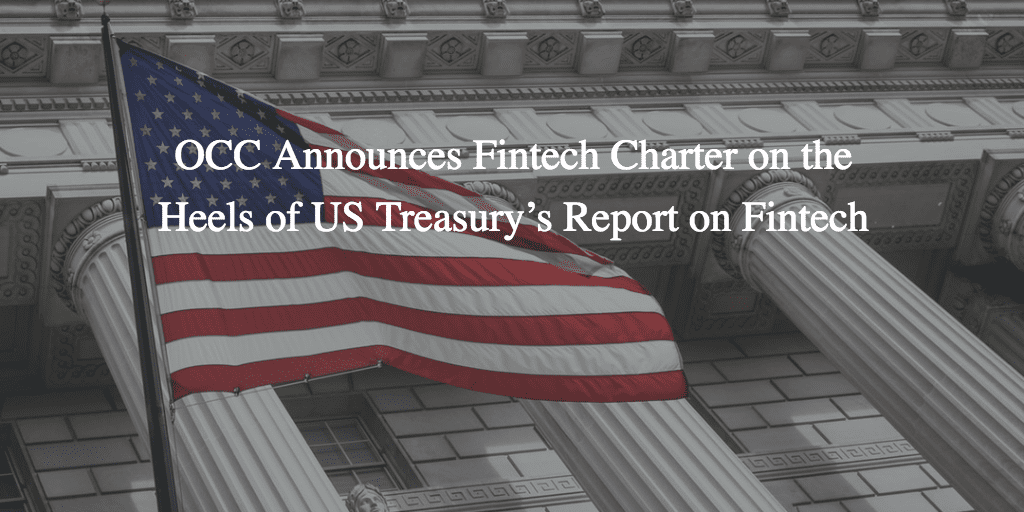The OCC Fintech Charter was formally proposed back in December 2016. Along with many other organizations we responded to their proposal in January of last year. Then a couple of months later the OCC released details on what the fintech charter might entail. Since then not much has happened. Until today.
Of course, the OCC went through a leadership transition with the new administration as former Comptroller of the Currency, Thomas Curry, ended his term in May, 2017. The OCC had a temporary leader, Keith Noreika, for six months until the current Comptroller, Joseph Otting, was sworn in. That was back in November and now eight months later the OCC has finally announced that they will begin accepting applications from fintech companies for this special purpose national bank charter. Here is what Comptroller Otting said about their new charter (from the press release):
The federal banking system must continue to evolve and embrace innovation to meet the changing customer needs and serve as a source of strength for the nation’s economy. The decision to consider applications for special purpose national bank charters from innovative companies helps provide more choices to consumers and businesses, and creates greater opportunity for companies that want to provide banking services in America.
Nat Hoopes, Executive Director of the Marketplace Lending Association, had this to say about the new charter (from Twitter):
We applaud the OCC for taking a major step today in favor of responsible innovation and greater access to capital for borrowers nationwide. The OCC’s existing bank chartering authority is a key tool to modernize banking regulation for the digital age. For banking regulation and supervision to keep pace with new technologies, there clearly needs to be viable on-ramps for innovative companies that want to become banks.
The OCC also released a policy statement and supplement to its licensing manual for fintech firms applying for a charter. In this they stress a number of factors including the importance of contingency plans to address financial stress and the promotion of financial inclusion. The application will go through a 30-day comment period and the OCC said it will aim to make a decision on an application within 120 days.
The US Treasury Report on Fintech
The timing of today’s announcement from the OCC was interesting given that just hours before the US Treasury had released their long awaited report on fintech. The report is the fourth in a series in response to an executive order issued by President Trump in February 2017. Previous reports focused on banks and credit unions, capital markets, and asset management and insurance.
The Treasury worked with a variety of stakeholders spanning financial services which influenced the recommendations released today. In all, there are 80 recommendations which are all centered around four goals. According to the release:
- Embrace the efficient and responsible use of consumer financial data and competitive technologies;
- Streamline the regulatory environment to foster innovation and avoid fragmentation;
- Modernize regulations for an array of financial products and activities; and
- Facilitate “regulatory sandboxes” to promote innovation.
The report is 222 pages in length and you can download the full report or view the fact sheet which is helpful in getting a baseline understanding of the recommendations. One of its recommendations was incidentally to move forward with the OCC Fintech Charter.
Not surprisingly, the states are dead against these kinds of national regulatory innovations. The New York Department of Financial Services released a statement against both the fintech charter and the Treasury’s recommendation to facilitate regulatory sandboxes. I disagree with their assertions here but clearly they are trying to protect their turf and they will receive strong support from other state agencies.
Maintain US Leadership in Finance
One of the most important but often overlooked roles of regulators today is to keep up with the rapid advances in technology. The US has led the world in finance for more than a century. If we want to lead the world for another century we will need a regulatory framework that encourages innovation. And I believe that should come at the national level, not at the state level. The moves today by the OCC and US Treasury will help foster innovation in financial services and help the US remain the global leader in finance.



